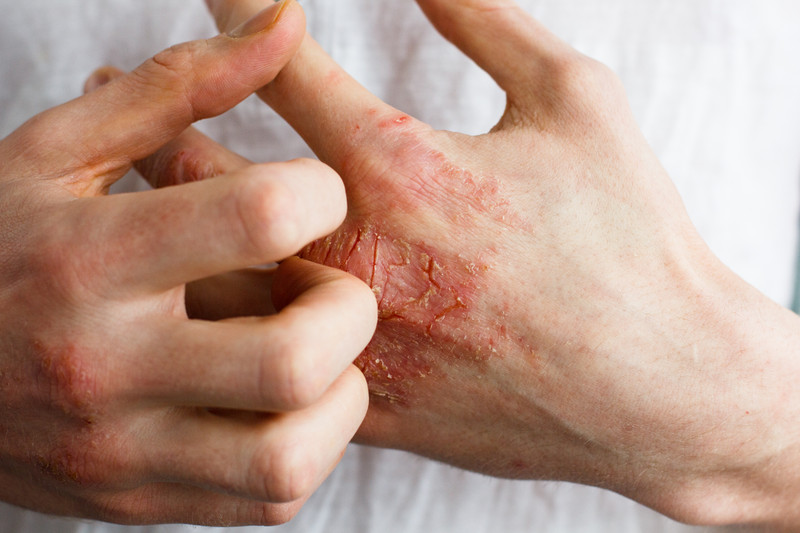Eczema refers to an inflammatory condition that affects the skin. It is characterized by itchiness, dry skin, rash, and other symptoms. Here, we take a broad view of this condition and discuss a variety of supplements which could ease eczema.
What Is Eczema?
Eczema is the name of a group of seven different inflammatory conditions of the skin. These conditions are classified together as “eczema” because of their similar and distinct symptoms. The most common eczema condition is atopic dermatitis.
Eczema is known for the mild-to-moderate itchiness it causes on the surface of skin, usually in the form of patches on different parts of the body. These patches can become reddish or ashen, resulting from inflammation and drying out of the skin. Skin can become sensitive and rough. Minor oozing and crusting can also occur. Potential eczema symptoms merit medical attention.
More than 25 million Americans are estimated to have atopic dermatitis. The symptoms result from an immune system overreaction to an internal or external irritant, causing the skin barrier to become dry and itchy. This type of eczema and others manifest in “flare-ups,” wherein symptoms occur for a period of time and then subside.
Family history and genetics contribute to a person’s risk of eczema. Many have learned to manage and live with it. Identifying and avoiding environmental triggers (e.g., wool, infection, tobacco smoke) is essential. Medications, both topical and oral, are used to prevent and treat symptoms. Many people may look for alternative remedies for eczema.
Supplements to Ease Eczema Symptoms
Skin cells depend on nutrients to be strong and healthy. The research and experiences of those with eczema who supplement their nutrition prove this. Following are the five best vitamins and nutrients to support skin health and ease up the occurrence of eczema symptoms:
Vitamin E is a vitamin that has been linked to healthy skin as well as healthy immunity. Research suggests that vitamin E can reduce inflammation and support skin barrier function, resulting in a mitigation of eczema symptoms. Around 400 IU of vitamin E per day, taken orally, is a common dosage used in credible studies on vitamin E and eczema. Moreso, evidence suggests it works excellently alongside vitamin D. Vitamin E is a great supplement for eczema because of its benefits to immunity and reduced inflammation.
Vitamin D is beneficial to the skin by way of its most common method of absorption: UV exposure. As you might have already reasoned, research shows that children with eczema see a benefit from supplementing with vitamin D, especially during winter months. Taking a vitamin D supplement could really help those with eczema who are deficient in this vitamin.
Vitamin B12 plays important roles in both the production of DNA, as cellular health in the blood and elsewhere. These effective applications of B12 in the body mean that it probably has a direct bearing on the health of skin cells as well. There is research linking low levels of vitamin B12 in the body with the onset and severity of eczema symptoms.
Melatonin is essential for getting the body to sleep, and it also supports the skin by way of its antioxidant and anti-inflammatory properties. Furthermore, melatonin could reduce eczema symptoms. At least one study showed nightly melatonin supplementation could reduce eczema in children.
Zinc is an important mineral for skin health, known to reduce inflammatory conditions of the skin including eczema as well as acne. We know zinc has an effect, because a large metastudy linked zinc deficiency with increased propensity for eczema symptoms.
If you or a loved one experience eczema, don’t neglect the benefits offered by vitamin and nutrient supplementation. Talk to your healthcare provider about how one or more of these fundamental nutrients could ease your eczema symptoms significantly.

